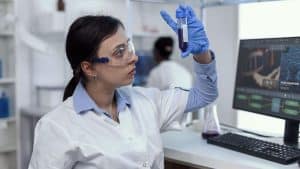Avoiding toxic chemicals makes sense if you want to stay healthy. That doesn’t just go for preserving your stem cells but also your more general wellbeing. Lots of the things you can do to try to mitigate an age-related loss of stem cells are fairly intuitive if you already pay lots of attention to optimizing your physical and mental state. Eat well and exercise, for example. But what about when it’s something meant to heal that’s causing the harm?
When your doctor prescribes you medication, you like to trust that they know what they’re doing. You follow the instructions and hopefully your infection will be cured, your pain will disappear and you’ll feel like yourself again. What we’re realizing more and more in the modern world, however, is that medications can have side effects. The most obvious are from the overuse of antibiotics, which has led to a growth in antibiotic-resistant infectious bacteria, but consult any medication label and you’ll see a list of possible negative outcomes.
Maybe it’s headaches or diarrhea. Perhaps it messes with your blood pressure or gives you a rash. There’s a balancing exercise that you need to do every time you’re ill and need to choose the most appropriate treatment. That includes considering your stem cells, which may not appear on the standard side effects list.
Antibiotics like quinolone are often used to treat respiratory and urinary tract infections. They can also damage your cells, particularly those in your joints, tendons and cartilage. This means that in addition to damage to circulating stem cells, you may be at risk of ruptured tendons in your knees, orthopedic injuries in your hips, and similar problems.
Then there are non-steroidal anti-inflammatory drugs (NSAIDS). These are painkillers like Ibuprofen and Aleve you can buy over the counter. They can specifically damage your ligaments and increase the risk of ruptures, along with chronic tendinopathy or degenerative disc disease. Other issues associated with NSAIDs include gastrointestinal problems, autoimmune disorders, neuropathy, kidney failure and strokes. This is not the sort of thing you want to see, and it’s all bad for your stem cells. That’s why some people turn to natural anti-inflammatories like fish oil and curcumin instead.
You need to talk carefully with your doctor about starting, changing or stopping any medication, but be aware of the implications for your stem cells.




